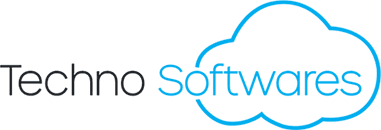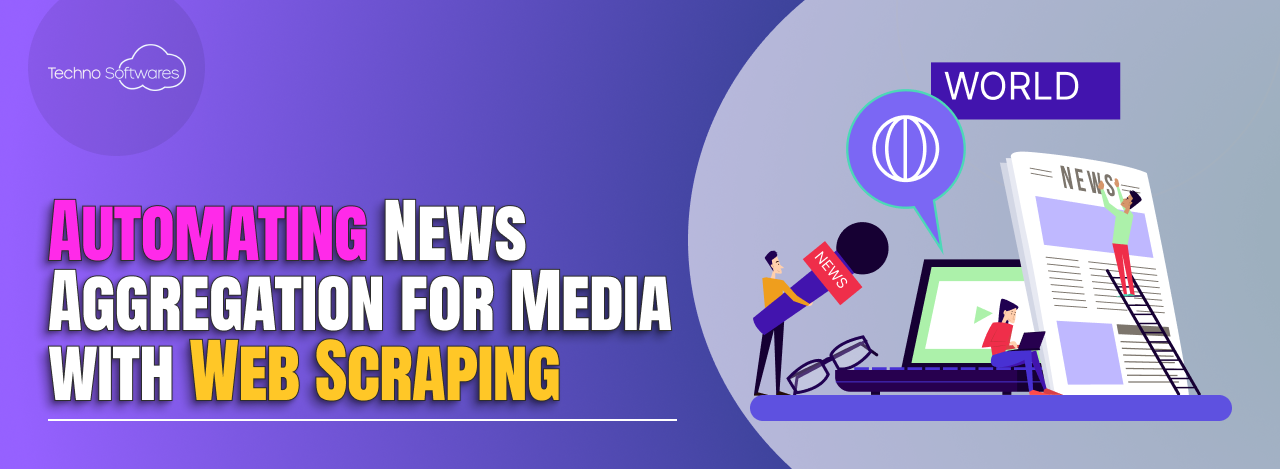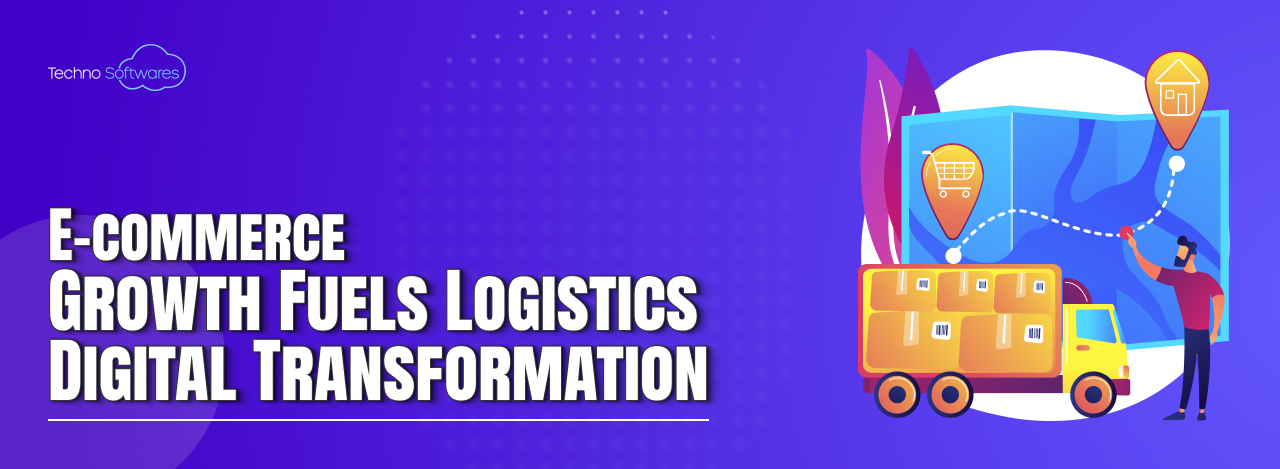How Media Companies Can Automate News Aggregation with Web Scraping
In the digital age, the sheer volume of information available online can be overwhelming. News aggregation has emerged as a vital solution, allowing users to access a curated selection of news articles from various sources in one place. This process involves collecting and displaying news content from multiple websites, enabling readers to stay informed without having to visit each site individually.
The rise of news aggregation has been significantly bolstered by advancements in technology, particularly through web scraping—a technique that automates the extraction of data from websites. By leveraging web scraping, news aggregators can efficiently gather headlines, articles, and other relevant information, streamlining the process of news consumption. Web scraping operates by utilizing bots or scripts to navigate web pages, identify specific data points, and extract that information for further use.
This technology has transformed how news is aggregated, allowing for real-time updates and a more comprehensive view of current events. As media consumption habits evolve, the demand for timely and relevant news has increased, making web scraping an indispensable tool for news aggregators. The combination of news aggregation and web scraping not only enhances user experience but also provides media companies with valuable insights into audience preferences and trends.
Key Takeaways
- News aggregation and web scraping play a crucial role in gathering and organizing information from various sources on the internet.
- Media companies use news aggregation to curate content, provide diverse perspectives, and engage their audience with relevant and timely news.
- Automating news aggregation with web scraping offers benefits such as efficiency, scalability, and real-time updates.
- Techno Softwares leverages web scraping to collect headlines, stories, and metadata from major news portals for their news aggregation platform.
- Overcoming challenges in web scraping for news aggregation involves handling dynamic content, avoiding detection, and ensuring data quality and reliability.
Understanding the Role of Media Companies in News Aggregation
Media companies play a crucial role in the landscape of news aggregation. They are often the original sources of content, producing articles, videos, and other forms of journalism that inform the public. In this context, media companies must navigate the delicate balance between sharing their content through aggregation platforms and protecting their intellectual property.
Many media organizations have embraced news aggregation as a means to reach wider audiences and drive traffic back to their own websites. By allowing their content to be featured on aggregator platforms, they can enhance visibility and potentially increase readership. However, this relationship is not without its complexities.
Media companies must consider how their content is presented on aggregation sites and whether it aligns with their brand identity. The challenge lies in ensuring that their original reporting is accurately represented while also benefiting from the exposure that aggregation provides. Some media companies have developed partnerships with aggregators to create mutually beneficial arrangements, where they can maintain control over their content while still gaining access to a broader audience.
This dynamic illustrates the evolving nature of media consumption and the importance of collaboration in the digital landscape.
The Benefits of Automating News Aggregation with Web Scraping

Automating news aggregation through web scraping offers numerous advantages for both aggregators and consumers. One of the primary benefits is efficiency; web scraping allows for the rapid collection of vast amounts of data from multiple sources without the need for manual intervention. This automation not only saves time but also ensures that news is updated in real-time, providing users with the latest information as it becomes available.
For instance, during breaking news events, automated systems can quickly gather updates from various outlets, presenting a comprehensive view of the situation. Additionally, automation enhances accuracy in data collection. Manual aggregation can lead to human error, such as overlooking important stories or misreporting details.
Web scraping tools are designed to extract specific data points consistently, reducing the likelihood of inaccuracies. Furthermore, these tools can be programmed to filter out irrelevant information, ensuring that users receive only the most pertinent news articles based on their interests. This level of precision not only improves user satisfaction but also fosters trust in the aggregator’s ability to deliver reliable content.
How Techno Softwares Utilizes Web Scraping for News Aggregation
Techno Softwares has positioned itself as a leader in leveraging web scraping technology for effective news aggregation. By employing advanced algorithms and machine learning techniques, Techno Softwares can efficiently gather data from a multitude of news websites. Their approach involves creating customized scraping scripts tailored to specific sources, allowing for targeted data extraction that aligns with user preferences.
This level of customization ensures that users receive content that is not only relevant but also diverse in perspective. Moreover, Techno Softwares emphasizes scalability in its web scraping operations. As new sources emerge and existing ones evolve, their systems are designed to adapt seamlessly.
This adaptability is crucial in a rapidly changing media landscape where new stories can break at any moment. By continuously updating their scraping protocols and maintaining a robust infrastructure, Techno Softwares ensures that its news aggregation services remain reliable and up-to-date. This commitment to innovation positions them as a key player in the field, capable of meeting the demands of both consumers and media companies alike.
The Process of Extracting Headlines, Stories, and Metadata from Major News Portals
The process of extracting headlines, stories, and metadata from major news portals involves several intricate steps that ensure comprehensive data collection. Initially, web scraping tools are programmed to identify specific elements within a webpage’s HTML structure—such as headlines, article bodies, publication dates, and author names. This requires a deep understanding of how different websites are structured since each may have unique layouts and coding practices.
Once the relevant elements are identified, the scraping tool navigates through the website’s pages systematically. It retrieves the desired information while adhering to any restrictions set by the website’s robots.txt file, which outlines permissible scraping activities. After extraction, the collected data is often cleaned and formatted to ensure consistency across different sources.
This step is crucial for maintaining accuracy and usability when presenting aggregated content to users. For example, if an aggregator pulls articles from both CNN and BBC News, it must standardize formatting so that users can easily compare stories side by side.
Overcoming Challenges in Web Scraping for News Aggregation

Overcoming Anti-Scraping Measures
One significant hurdle is dealing with anti-scraping measures employed by many websites. These measures can include CAPTCHAs, IP blocking, or dynamic content loading techniques that make it difficult for automated tools to access information. To overcome these obstacles, developers must continuously adapt their scraping strategies, employing techniques such as rotating IP addresses or using headless browsers that mimic human behavior.
Maintaining Data Integrity
Another challenge lies in maintaining data integrity amidst frequent changes in website structures. News portals often update their layouts or coding practices without notice, which can disrupt scraping operations.
Mitigating Risks and Ensuring Ongoing Access
To mitigate this risk, it is essential for developers to implement robust monitoring systems that alert them to changes in target websites. Regular updates to scraping scripts may be necessary to accommodate these changes and ensure ongoing access to valuable content. By proactively addressing these challenges, aggregators can maintain a steady flow of information while minimizing disruptions.
Ensuring Accuracy and Reliability in Automated News Aggregation
Accuracy and reliability are paramount in automated news aggregation; users depend on these platforms for trustworthy information. To ensure high standards of accuracy, aggregators must implement rigorous validation processes for the data they collect. This may involve cross-referencing articles against multiple sources or employing natural language processing (NLP) techniques to assess the credibility of information before it is presented to users.
Additionally, maintaining a feedback loop with users can enhance reliability. By allowing users to report inaccuracies or outdated information, aggregators can quickly address issues and improve their systems over time. Furthermore, employing machine learning algorithms can help identify patterns in user behavior and preferences, enabling more tailored content delivery that aligns with audience expectations.
This focus on accuracy not only builds trust with users but also enhances the overall reputation of the aggregator within the competitive media landscape.
The Impact of Automated News Aggregation on Media Companies
The rise of automated news aggregation has had profound implications for media companies. On one hand, it offers an opportunity for increased visibility; by having their content featured on aggregator platforms, media organizations can reach new audiences who may not have otherwise encountered their work. This exposure can lead to higher traffic on their own websites and potentially boost subscription rates or ad revenue.
Conversely, there are concerns regarding content ownership and revenue sharing. Media companies may worry about losing control over how their articles are presented or whether they will receive adequate compensation for their work when featured on aggregator sites. As a result, some organizations have begun exploring alternative business models that allow them to monetize their content more effectively while still participating in aggregation networks.
This evolving relationship between media companies and aggregators highlights the need for clear agreements and collaboration strategies that benefit both parties.
Legal and Ethical Considerations in Web Scraping for News Aggregation
The legal landscape surrounding web scraping is complex and often fraught with ambiguity. Media companies may assert copyright claims over their content, raising questions about whether aggregators have the right to scrape and display articles without permission. In some jurisdictions, courts have ruled in favor of aggregators under fair use provisions; however, this remains a contentious issue that varies widely depending on local laws.
Ethical considerations also play a significant role in this discussion. Aggregators must navigate the fine line between providing valuable services to users and respecting the rights of original content creators. Transparency is key; aggregators should clearly communicate how they source their content and ensure proper attribution when necessary.
Establishing ethical guidelines for web scraping practices can help foster trust between aggregators and media companies while promoting responsible content sharing.
Future Trends and Innovations in Automated News Aggregation
As technology continues to evolve, so too will the landscape of automated news aggregation. One emerging trend is the integration of artificial intelligence (AI) into aggregation processes. AI algorithms can analyze vast amounts of data at unprecedented speeds, identifying trends and generating insights that were previously unattainable.
This capability could lead to more personalized news experiences for users based on their reading habits and preferences. Another innovation on the horizon is the use of blockchain technology to enhance transparency and accountability in content sharing. By creating immutable records of content ownership and usage rights, blockchain could help address some of the legal concerns surrounding web scraping while ensuring that original creators receive appropriate credit for their work.
As these technologies develop further, they hold the potential to reshape how news aggregation operates in ways that prioritize both efficiency and ethical considerations.
The Future of News Aggregation with Web Scraping
The future of news aggregation is poised for significant transformation as web scraping technology continues to advance alongside evolving media consumption habits. As aggregators refine their methods for collecting and presenting information, they will likely become even more integral to how audiences engage with news content. The interplay between media companies and aggregators will also evolve as both parties seek mutually beneficial arrangements that respect intellectual property rights while maximizing exposure.
In this dynamic environment, ensuring accuracy, reliability, and ethical practices will remain paramount for all stakeholders involved in news aggregation. As new technologies emerge—such as AI and blockchain—the potential for innovation will drive further enhancements in how news is aggregated and consumed. Ultimately, these developments will shape not only the future of news aggregation but also the broader landscape of journalism itself.
If you are interested in learning more about how Techno Softwares can help automate various operations, you may want to check out their article on migration logistics operations. This article discusses how Techno Softwares can assist in streamlining logistics processes through automation. Additionally, if you are looking to develop an ecommerce website, you can read their article on ecommerce website development pricing guide to understand the costs involved. Furthermore, if you are curious about the role of APIs in travel portal development, Techno Softwares has an article on the role of APIs in travel portal development that delves into this topic.
Get Scraping Service (FREE Demo)
FAQs
What is news aggregation?
News aggregation is the process of collecting and curating news content from various sources and presenting it in a single location for easy access and consumption.
What is web scraping?
Web scraping is the automated process of extracting data from websites. It involves using software to access and collect information from web pages.
How can media companies automate news aggregation with web scraping?
Media companies can use web scraping to automatically extract headlines, stories, and metadata from major news portals. This allows them to aggregate news content from multiple sources without the need for manual curation.
What are the benefits of automating news aggregation with web scraping?
Automating news aggregation with web scraping allows media companies to save time and resources by eliminating the need for manual data collection. It also enables them to access a wider range of news sources and stay up to date with the latest developments in their industry.
How can Techno Softwares help with news aggregation through web scraping?
Techno Softwares offers web scraping services that can extract headlines, stories, and metadata from major news portals. Their expertise in data extraction and automation can help media companies streamline their news aggregation process.





